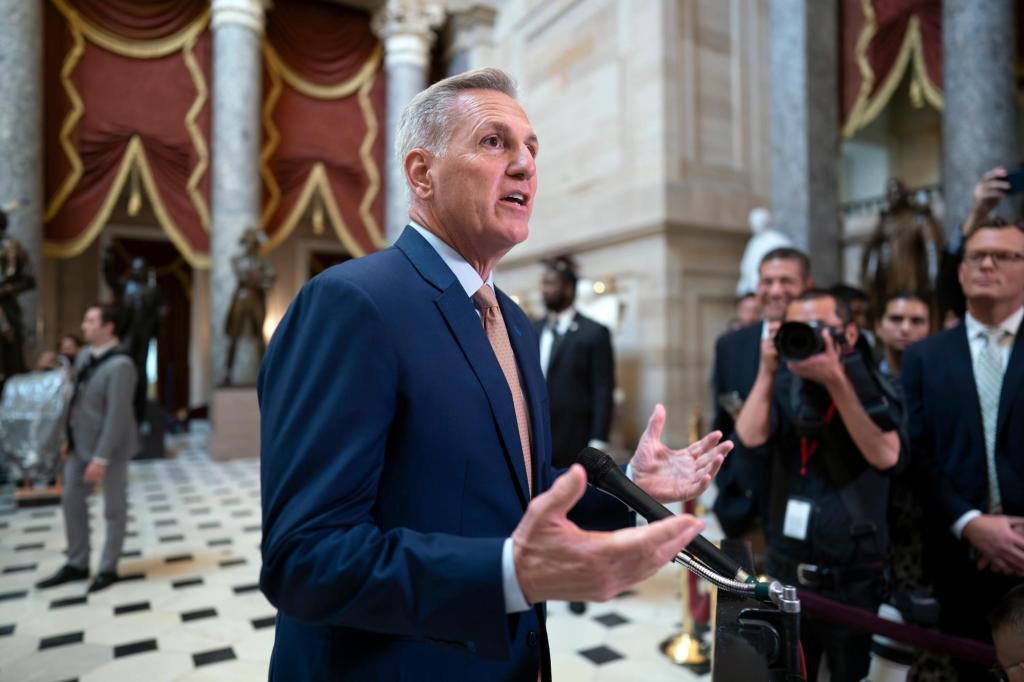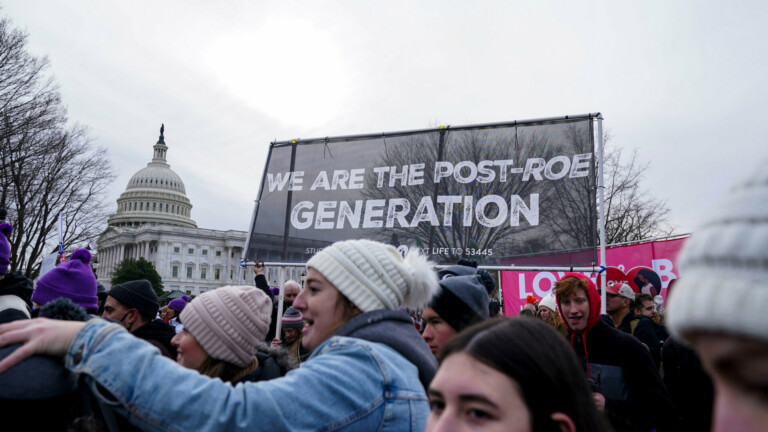The House Freedom Caucus announced on Monday it would oppose a stop-gap measure to keep the government funded unless certain conservative provisions are included, complicating efforts in Congress to avert a government shutdown come Oct. 1 and likely prompting a confrontation with House Speaker Kevin McCarthy.
The hard-line group of conservatives, which has been been a reliable thorn in McCarthy’s side since they held up his bid for the gavel, said in a statement that its members would oppose a “clean” continuing resolution, extending 2023 spending levels while lawmakers would be granted more time to come to agreement on the 12 appropriations bills they have been pursuing to fund the government. The group demanded instead that a CR include provisions to address border security, DOJ “weaponization” and end “woke” Pentagon policies.
With just one of the 12 appropriations bills having cleared the House, McCarthy reportedly told his conference during a call last week that he expects a CR will be necessary.
Punting the deadline to grant lawmakers more time to reach a deal has been common in government funding fights in recent years. Accordingly, leaders in Congress appeared to be on the same page this year as reality sets in that lawmakers will have only a small number of legislative days to approve the appropriations bills upon their return from August recess.
“Speaker McCarthy and I met a few weeks back and we agreed we should do what’s called a CR – in other words, a congressional resolution where you just extend the existing funding for a few months so we could work this out,” Senate Majority Leader Chuck Schumer told MSNBC last week, though he noted that “our Republican colleagues in the House need to follow the lead of their Republican colleagues in the Senate and work in a bipartisan way.”
But the House Freedom Caucus drew a red line, demanding that the House-passed Secure the Border Act, which imposes limits on asylum rules, among other things, be included in a stop-gap measure. Additionally, they stipulate that a CR must address “the unprecedented weaponization of the Justice Department and FBI” and “end the Left’s cancerous woke policies in the Pentagon.”
“Any support for a ‘clean’ continuing resolution would be an affirmation of the current FY 2023 spending level grossly increased by the lame-duck December 2022 omnibus spending bill that we all vehemently opposed just seven months ago,” they wrote.
Such legislation would lose support among House Democrats, and face steep odds in the Democrat-controlled Senate. But without the support of conservatives on a clean CR and only a few votes to spare in the GOP narrow majority, McCarthy will likely need to rely on Democrats to approve a stop-gap measure – a move that could be politically damaging.
The dynamic was on display during the fight to raise the debt ceiling, as House conservatives demanded controversial spending cuts and policies that put McCarthy in a difficult negotiating position with Democrats and the White House. Ultimately, Democratic votes on the debt ceiling agreement outnumbered Republicans in the House, in a turn of events that infuriated some members of the House Freedom Caucus.
That same small but vocal minority – numbering in the mid-30s out of 222 Republicans in the chamber – made their frustration known just days later, when they blocked a routine vote, sending the chamber into a week-long gridlock. At the chamber’s reunification, McCarthy told reporters they had agreed to “sit down and talk more” in future spending negotiations. And shortly after, Republican appropriators agreed to mark up the 12 spending bills well below the levels agreed to in the debt ceiling deal in what appeared to be a major concession made to the House Freedom Caucus that has colored the appropriations process so far.
McCarthy has walked a fine line with the conservatives since the speaker battle, when he granted those who opposed his bid the power to bring up a vote for his ouster, lowering the threshold to just a single lawmaker – a reality that has hung over his every move since he assumed the role. And the spending fight to come is expected to be no different.







